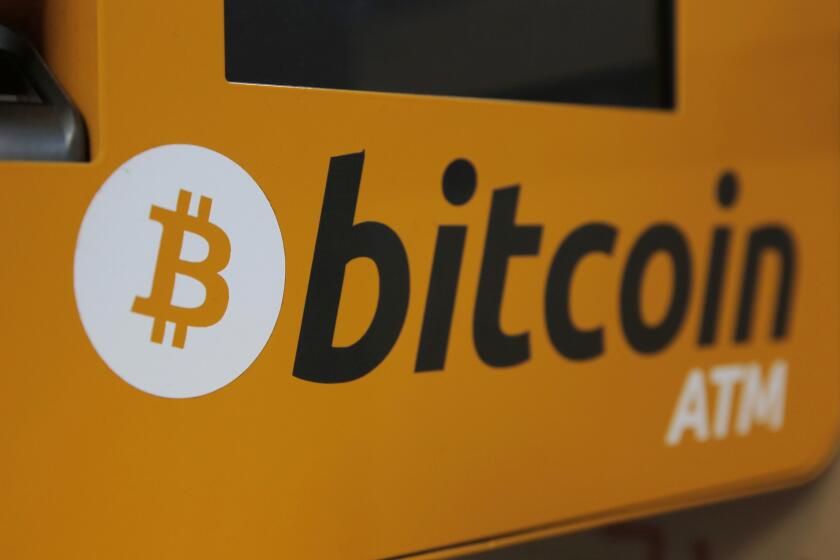Audit of Fed’s gold finds it’s safe, more pure than expected
NEW YORK — Turns out the Federal Reserve’s gold is secure and a bit more pure than previously thought — or so the government says.
Auditors spent weeks last year in a vault five stories beneath Manhattan counting, weighing and drilling small holes into gold bars owned by the U.S. Treasury.
It was the first time the Treasury’s inspector general had audited the department’s gold held by the Federal Reserve Bank of New York, which has captured the imagination of Hollywood as well as government skeptics.
The audit’s results are in: The New York Fed’s operations and controls are up to snuff, and the U.S. gold on deposit is a bit finer than Treasury records had indicated.
Still, the audit probably will not lay to rest questions over whether the New York Fed has secretly lent the gold or otherwise encumbered it in a swap transaction with another government or bank.
“There’s no way to prove there’s not a secret agreement,” said Ted Truman, a former assistant Treasury secretary and top Fed official.
The audit of the Fed gold came after 2012 presidential contender and former Rep. Ron Paul (R-Texas) questioned the central bank’s gold holdings.
While he was in Congress, Paul questioned whether the Fed had lent or otherwise encumbered U.S. gold in financial arrangements. At a congressional hearing in 2011, the Treasury Department’s inspector general, Eric Thorson, assured Paul that “not one troy ounce is encumbered.”
Paul has called for a full, independent audit and assay of the country’s gold reserves. But as part of its audit, the Treasury tested a sample — not all — of the government’s 34,021 gold bars in the New York Fed’s vault.
In three of the 367 tests, the gold was more pure than Treasury records indicated, according to the inspector general. As a result, the government notched up the value of its gold holdings by approximately 27 fine troy ounces — or about $43,500, based on gold’s market price Monday.
The assaying process consumed 10 ounces of gold, and the remaining 69 ounces removed for sampling were returned to the Treasury, according to the inspector general’s office.
The U.S. gold at the New York Fed has been placed under so-called Official Joint Seals, attesting to the results of the audit.
“At this point, we do plan to conduct this audit annually,” the inspector general’s office said in emailed responses to questions. “However, since the gold is now under Official Joint Seal, we would not anticipate weighing, counting and assaying unless the seal shows signs of tampering.”
The audit also examined internal controls, security and operations at the New York Fed. “Our audit disclosed no material weaknesses and no instances of reportable noncompliance with laws and regulations,” the Treasury’s audit report said.
The New York Fed holds 99.98% of the U.S.-owned gold bars and coins in the custody of the Federal Reserve. The rest of the gold is on display at Fed banks in cities such as Richmond, Va.; Kansas City, Mo.; and San Francisco.
As of Sept. 30, when the market price of gold was $1,776 an ounce, the Fed banks held $23.9 billion in U.S. gold. (Gold has since declined in value, and on Monday the precious metal was hovering around $1,610 an ounce.) The vast majority — about 95% — of the country’s gold reserves is held elsewhere, in Ft. Knox, Ky.; West Point, N.Y.; and Denver.
Truman, the former Treasury and Fed official, was not surprised by the audit’s findings.
“I would be flabbergasted if they found some huge discrepancy or even a substantial discrepancy between what they said they had and what they found,” Truman said.
Still, the audit won’t end conspiracy theories that involve the government’s gold held by the Fed, he said.
“I would surprised if anyone’s convinced of anything,” he said. “They’ll conspire now about whether the audit was aboveboard.”
More to Read
Inside the business of entertainment
The Wide Shot brings you news, analysis and insights on everything from streaming wars to production — and what it all means for the future.
You may occasionally receive promotional content from the Los Angeles Times.










